SRI LANKA: Seven Tamil detainees hospitalised after severe torture by the prison officials inside Bogambara Remand Prison
August 4, 2011
ASIAN HUMAN RIGHTS COMMISSION-URGENT APPEAL PROGRAMME
Urgent Appeal Case: AHRC-UAC-133-2011
3 August 2011
------------------------------------------------------
SRI LANKA: Seven Tamil detainees hospitalised after severe torture by the prison officials inside Bogambara Remand Prison
ISSUES: Torture; impunity; rule of law
------------------------------------------------------
Dear friends,
Tamil detainees in Bogambara Prison were severely tortured by the prison officials on 14 June 2011. They were threatened that they would face the same difficulties as Kuttamanni and Thangathurai, two former detainees who were killed. The prison officials later admitted the seven detainees to the Prison Hospital at Bogambara Prison. Neither the police nor prison officials have initiated an independent investigation into the incident yet. Justice has been denied to the victims. This case is yet another illustration of the exceptional collapse of the rule of law in the country.
CASE NARRATIVE:
According to the information that the Asian Human Rights Commission (AHRC) received, seven Tamil detainees in Bogambara Remand Prison in Kandy were severely tortured by prison officials on 14 June 2011 inside the prison premises.
Following a dispute which happened between two groups of Sinhalese prisoners several officers came to the prison to investigate the matter. This dispute was due to a territorial argument as both groups selling drugs in the prisons compound.
While the prison officials were carrying out their investigation they started to torture Tamil detainees in the remand prison who had no connection what-so-ever with the dispute. The particular detainees have been held for several years without being charged due to delays in the judicial system. The officers abandoned their investigation and started to torture these detainees, threatening that they would face the same difficulties as Kuttamanni and Thangathurai, two former detainees who were killed some years ago. The incident pertaining to their deaths became nation-wide news at the time. The prisoners were bleeding from their injuries and suffering greatly from pain. The prison officials admitted all seven detainees to the Prison Hospital for treatment.
To-date, the prison authorities have paid no attention to the incident and no investigation into the violations of the detainee's rights has been instigated.
Furthermore the police also, have not made any effort to investigate these brutal attacks. While prisoners can make complaints within the prison itself they are not permitted to make complaints to the outside authorities. The Headquarters Police Station of Kandy is situated in close proximity to the location where the incident took place. The Headquarters Inspector of Police (HQI) of the said police station is supposed to initiate an investigation on any incident which endangers the lives of detainees but he has ignored his official duties.
The details of the detainees who were tortured as follows:
1. Ramaia Rubachandiran (38) of Walaygala, Kandy father of three who was arrested on 13 May 2008
2. Weersami Sivasubramaniyam (35) of Rathwatta, Matale who is a father of two and arrested on 10 August 2008
3. Ganasean Pushparaja (29) of Lindhula, Hatton a father of one child and who was arrested on 21 September 2008
4. Ramaiya Thevarasa (34) of Putu Kudiyeruppu who was arrested on 1 June 2009
5. Vishwanadan Rameshkumar of Ratwatte, Ukuwala who is a father of one child and arrested on 9 August 2008
6. Velu Yogarasa (24) of Marugola, Ukuwela who was arrested on 9 August 2008
7. Fernando (25) of Ukuwella, Thalawakala who was arrested on 16 August 2008.
All the prisoners are waiting for justice for the violation of fundamental rights of them.
ADDITIONAL COMMENTS:
The Asian Human Rights Commission has reported innumerable cases of torturing innocent persons by different state agencies including prison and police which are illegal under international and local law which have taken place at different Police Station in the country over the past few years.
The State of Sri Lanka sign and ratified the CAT on 3 January 1994. Following state obligations Sri Lanka adopted Act number 22 of 1994 the law adopted by the Sri Lankan parliament making torture a crime that can be punishable for minimum seven years and not less than ten years on being proven guilty. The Attorney General of Sri Lanka is suppose to file indictments in the case where credible evidence were found on torturing people by state officers.
SUGGESTED ACTION:
Please send a letter to the authorities listed below expressing your concern about this case and requesting an immediate investigation into the allegations of torturing by the prison perpetrators, and the prosecution of those proven to be responsible under the criminal law of the. The officers involved must also be subjected to internal investigations for the breach of the department orders as issued by the prison department.
Please note that the AHRC has also written a separate letter to the Special Rapporteur on torture and other cruel, inhuman or degrading treatment or punishment on this regard.
To support this appeal please click here:
SAMPLE LETTER:
Dear ________,
SRI LANKA: Seven Tamil detainees hospitalised after severe torture by the prison officials inside Bogambara Remand Prison
Name of the victims:
1. Ramaia Rubachandiran (38) of Walaygala, Kandy father of three who was arrested on 13 May 2008
2. Weersami Sivasubramaniyam (35) of Rathwatta, Matale who is a father of two and arrested on 10 August 2008
3. Ganasean Pushparaja (29) of Lindhula, Hatton a father of one child and who was arrested on 21 September 2008
4. Ramaiya Thevarasa (34) of Putu Kudiyeruppu who was arrested on 1 June 2009
5. Vishwanadan Rameshkumar of Ratwatte, Ukuwala who is a father of one child and arrested on 9 August 2008
6. Velu Yogarasa (24) of Marugola, Ukuwela who was arrested on 9 August 2008
7. Fernando (25) of Ukuwella, Thalawakala who was arrested on 16 August 2008
All are detained in the Bogambara Prison in Kandy district
Alleged perpetrator: Prison officials attached to the Bogambara Prison
Date of incident: 14 June 2011
Place of incident: Bogambara Prison
According to the information that I have received from the Asian Human Rights Commission (AHRC), seven Tamil detainees in Bogambara Remand Prison in Kandy were severely tortured by prison officials on 14 June 2011 inside the prison premises.
Following a dispute which happened between two groups of Sinhalese prisoners several officers came to the prison to investigate the matter. This dispute was due to a territorial argument as both groups selling drugs in the prisons compound.
While the prison officials were carrying out their investigation they started to torture Tamil detainees in the remand prison who had no connection what-so-ever with the dispute. The particular detainees have been held for several years without being charged due to delays in the judicial system. The officers abandoned their investigation and started to torture these detainees, threatening that they would face the same difficulties as Kuttamanni and Thangathurai, two former detainees who were killed some years ago. The incident pertaining to their deaths became nation-wide news at the time. The prisoners were bleeding from their injuries and suffering greatly from pain. The prison officials admitted all seven detainees to the Prison Hospital for treatment.
To-date, the prison authorities have paid no attention to the incident and no investigation into the violations of the detainee's rights has been instigated.
Furthermore the police also, have not made any effort to investigate these brutal attacks. While prisoners can make complaints within the prison itself they are not permitted to make complaints to the outside authorities. The Headquarters Police Station of Kandy is situated in close proximity to the location where the incident took place. The Headquarters Inspector of Police (HQI) of the said police station is supposed to initiate an investigation on any incident which endangers the lives of detainees but he has ignored his official duties.
All the prisoners are waiting for justice for the violation of fundamental rights of them.
I therefore request your urgent intervention to ensure that the authorities listed below instigate an immediate investigation into the allegations of torture by the prison perpetrators, and the prosecution of those proven to be responsible under the criminal law of the country. The officers involved must also be subjected to internal investigations for the breach of the department orders as issued by the prison department.
Yours sincerely,
---------------------
PLEASE SEND YOUR LETTERS TO:
1. Mr. N K Illangakoon
Inspector General of Police
New Secretariat
Colombo 1
SRI LANKA
Fax: +94 11 2 440440 / 327877
E-mail: igp@police.lk
2. Mr. Mohan Peiris
Attorney General
Attorney General's Department
Colombo 12
SRI LANKA
Fax: +94 11 2 436421
E-mail: ag@attorneygeneral.gov.lk
3. Secretary
National Police Commission
3rd Floor, Rotunda Towers
109 Galle Road
Colombo 03
SRI LANKA
Tel: +94 11 2 395310
Fax: +94 11 2 395867
E-mail: npcgen@sltnet.lk or polcom@sltnet.lk
4. Secretary
Sri Lanka Human Rights Commission
No. 108
Barnes Place
Colombo 07
SRI LANKA
Tel: +9411 2694925, +9411 2685980, +9411 2685981
Fax: +9411 2694924 (General) +94112696470 (Chairman)
E-mail: sechrc@sltnet.lk
5. Major General V. R. de Silva
Commissioner General of Prisons
No.150, Baseline Road, Colombo 09,
SRI LANKA
Fax - +94 11 4677180
Email - prisons@sltnet.lk
Thank you.
Urgent Appeals Programme
Asian Human Rights Commission (ua@ahrc.asia)
------------------------------------------------
Article 2
Defending the human rights defender: Standing up for FMA Razzak
Extended Introduction: Urgent Appeals, theory and practice
A need for dialogue
Many people across Asia are frustrated by the widespread lack of respect for human rights in their countries. Some may be unhappy about the limitations on the freedom of expression or restrictions on privacy, while some are affected by police brutality and military killings. Many others are frustrated with the absence of rights on labour issues, the environment, gender and the like.
Yet the expression of this frustration tends to stay firmly in the private sphere. People complain among friends and family and within their social circles, but often on a low profile basis. This kind of public discourse is not usually an effective measure of the situation in a country because it is so hard to monitor.
Though the media may cover the issues in a broad manner they rarely broadcast the private fears and anxieties of the average person. And along with censorship – a common blight in Asia – there is also often a conscious attempt in the media to reflect a positive or at least sober mood at home, where expressions of domestic malcontent are discouraged as unfashionably unpatriotic. Talking about issues like torture is rarely encouraged in the public realm.
There may also be unwritten, possibly unconscious social taboos that stop the public reflection of private grievances. Where authoritarian control is tight, sophisticated strategies are put into play by equally sophisticated media practices to keep complaints out of the public space, sometimes very subtly. In other places an inner consensus is influenced by the privileged section of a society, which can control social expression of those less fortunate. Moral and ethical qualms can also be an obstacle.
In this way, causes for complaint go unaddressed, un-discussed and unresolved and oppression in its many forms, self perpetuates. For any action to arise out of private frustration, people need ways to get these issues into the public sphere.
Changing society
In the past bridging this gap was a formidable task; it relied on channels of public expression that required money and were therefore controlled by investors. Printing presses were expensive, which blocked the gate to expression to anyone without money. Except in times of revolution the media in Asia has tended to serve the well-off and sideline or misrepresent the poor.
Still, thanks to the IT revolution it is now possible to communicate with large audiences at little cost. In this situation there is a real avenue for taking issues from private to public, regardless of the class or caste of the individual.
Practical action
The AHRC Urgent Appeals system was created to give a voice to those affected by human rights violations, and by doing so, to create a network of support and open avenues for action. If X’s freedom of expression is denied, if Y is tortured by someone in power or if Z finds his or her labour rights abused, the incident can be swiftly and effectively broadcast and dealt with. The resulting solidarity can lead to action, resolution and change. And as more people understand their rights and follow suit, as the human rights consciousness grows, change happens faster. The Internet has become one of the human rights community’s most powerful tools.
At the core of the Urgent Appeals Program is the recording of human rights violations at a grass roots level with objectivity, sympathy and competence. Our information is firstly gathered on the ground, close to the victim of the violation, and is then broadcast by a team of advocates, who can apply decades of experience in the field and a working knowledge of the international human rights arena. The flow of information – due to domestic restrictions – often goes from the source and out to the international community via our program, which then builds a pressure for action that steadily makes its way back to the source through his or her own government. However these cases in bulk create a narrative – and this is most important aspect of our program. As noted by Sri Lankan human rights lawyer and director of the Asian Human Rights Commission, Basil Fernando:
"The urgent appeal introduces narrative as the driving force for social change. This idea was well expressed in the film Amistad, regarding the issue of slavery. The old man in the film, former president and lawyer, states that to resolve this historical problem it is very essential to know the narrative of the people. It was on this basis that a court case is conducted later. The AHRC establishes the narrative of human rights violations through the urgent appeals. If the narrative is right, the organisation will be doing all right."
Patterns start to emerge as violations are documented across the continent, allowing us to take a more authoritative, systemic response, and to pinpoint the systems within each country that are breaking down. This way we are able to discover and explain why and how violations take place, and how they can most effectively be addressed. On this path, larger audiences have opened up to us and become involved: international NGOs and think tanks, national human rights commissions and United Nations bodies. The program and its coordinators have become a well-used tool for the international media and for human rights education programs. All this helps pave the way for radical reforms to improve, protect and to promote human rights in the region.
Asian Human Rights Commission
Unit 701A, Westley Square
48 Hoi Yuen Road
Kwun Tong, KLN
Hong Kong, China
Tel: +(852) 2698 6339
Fax: +(852) 2698 6367
U.S. sanctions nearly 300 targets aiding Russia's war against Ukraine
for 21 minutter siden

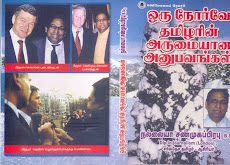
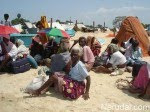
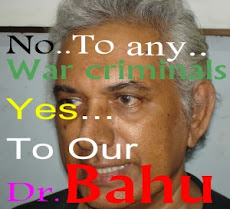

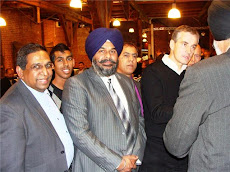


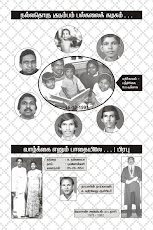
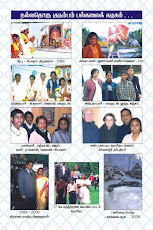
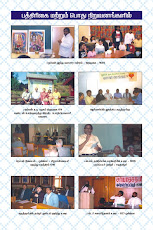
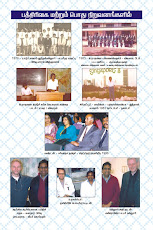
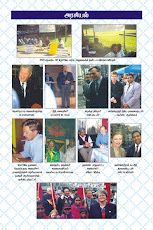
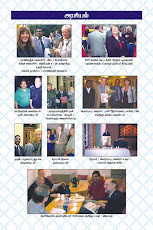

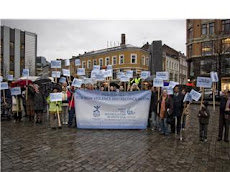


Ingen kommentarer:
Legg inn en kommentar